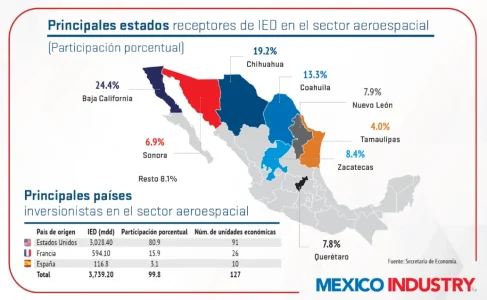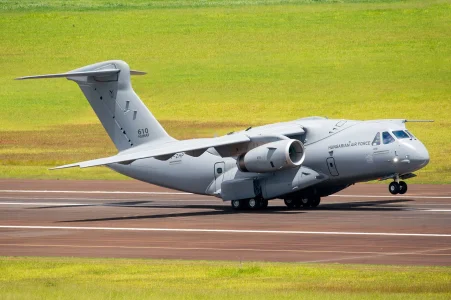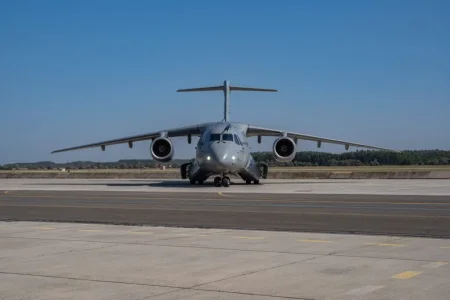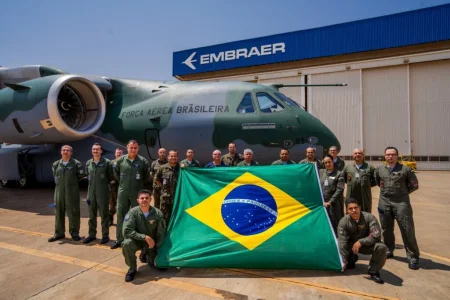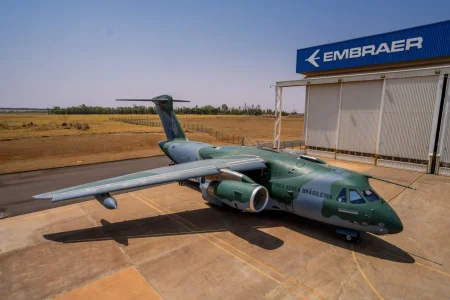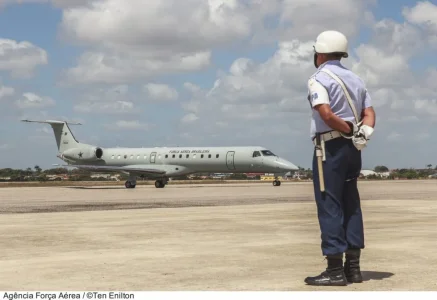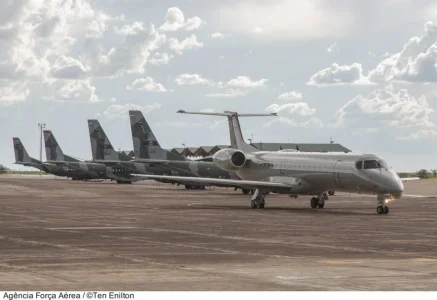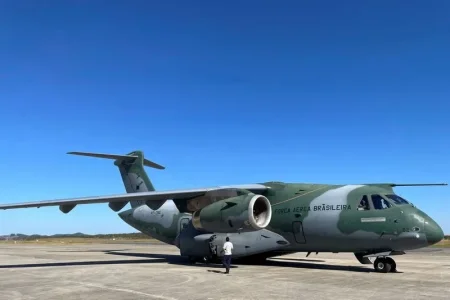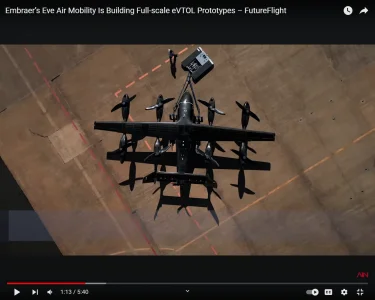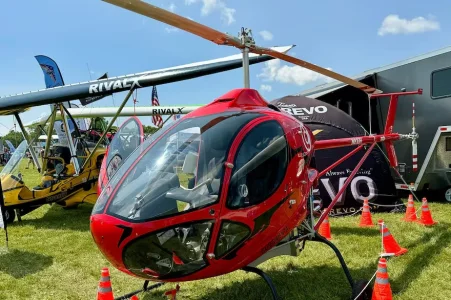- Joined
- Jul 3, 2024
- Messages
- 1,712
- Likes
- 2,290
For 50 years, Frisa has faced various challenges that have marked the history of the Monterrey company, to be more competitive and achieve a presence in practically the entire world.
The internationalization of the company, the diversification of the market and the integration of different capacities have been some of the most important milestones that the company has had over the years, as explained by Erick González, director of Supply Chain and New Business Development at Frisa, at the conference “Frisa: Forging a success story.”
Frisa was founded 50 years ago and one of its great challenges was to internationalize the company, so if it wanted to reach more countries and markets, it had to focus on the quality of its products in order to export them. However, in Mexico in the 80s this issue was not yet relevant.
“Mexico had a closed economy, quite complicated, possibly the issue of quality was not so well known within the productive aspects of Mexico.
“When we went international, we saw quality specifications that we had not seen before. So, really, even though they were unknown, we had to adapt to the needs of the clients that existed internationally,” said González, within the framework of the Aerospace and Advanced Manufacturing Congress “Altitude,” organized by Monterrey Aerocluster and the Aerospace Society (SAERO) of the Tecnológico de Monterrey.
Another of the milestones that has been a key point for the company to have greater stability is the diversification and segmentation of markets.
“The first product that Frisa made was the blades for forklifts, and that was the flagship product for several years. Later, Frisa bought new equipment, equipment with more capacity, presses, and when the press was purchased, it came with a bending machine,” he said.
The company has a presence not only in the aerospace sector, but also in the oil, industrial, heavy machinery and more.
And the last milestone that the exhibitor highlighted was the vertical and horizontal integration of the process, which has led the company to increase its offering according to the needs of its clients and those of the market.
“And sometimes the way to grow is how we sell different products to those same clients. We don't necessarily have to look for a new market, but rather what else we can offer our clients,” he explained.
The company melts its own steel to make forged rings, forged blocks, among others, and currently has nearly 3,000 employees.
In 2003, Frisa installed its plant aimed at the aerospace industry in Santa Catarina, Nuevo León. Frisa Aerospace is a leader in the manufacture of components for aircraft engines and has the capacity to forge up to 25 tons of steel.
“Growth was very slow, but 40% of the company's sales are from the aerospace sector.
“Practically, the Frisa Aerospace component is in every aircraft engine,” he added.
Currently, 68% of the company's production goes to the North American market (United States and Canada), Europe and a high percentage to Asia.
Frisa's client portfolio includes General Electric, Siemens, Pratt and Whitney, Rolls-Royce, Kawasaki, Caterpillar, John Deere, among others.
"Perhaps in the future we will be able to assemble more abundant components within the industrial space network," he said.

 mexicoindustry.com
ATG Additive Manufacturing was founded by four businessmen from Guanajuato, all directors of companies dedicated to the aerospace sector in the state. Mexico Industry had an exclusive interview with Carlos Alastair, general director of this company.
mexicoindustry.com
ATG Additive Manufacturing was founded by four businessmen from Guanajuato, all directors of companies dedicated to the aerospace sector in the state. Mexico Industry had an exclusive interview with Carlos Alastair, general director of this company.
This company specializes in the design, development and manufacturing of parts with additive manufacturing (AM) of metals through the PBF-L (Powder Bed Fusion by Laser) process, also known as DMLS or SLM.
With this technology, highly complex and high-performance parts can be manufactured. The company has three divisions:
Molds, dies and tooling,
Aeronautical and aerospace and
Medical.
Multidisciplinary talent
“We are dedicated to the design, development, simulation and manufacturing of complex parts for different sectors in terms of additive manufacturing of metals, it is known as Powder Bed Fusion by Laser or many people colloquially know it as 3D metal printing. We have a multidisciplinary talent group, we have aeronautical engineers, mechanics, physicists, among others,” said Alastair.
“In the aerospace field we are working with several companies, we are collaborating to be able to apply this technology in applications of aircraft interiors, such as seats, which are components that are not very critical and for which we have identified many areas of opportunity,” he added.
And he continued: “In addition, we are also working hand in hand with the academy, through an initiative with which we can provide them with our technology and thus, they can exploit their potential,” the executive shares.
Three business units
ATG Additive is the first company in Guanajuato that is dedicated to additive manufacturing through the use of metals, currently operating with three business units, such as design focused on new technologies, product development, component manufacturing, among others.

 mexicoindustry.com
NUEVO LEON - The Monterrey-based company Frisa will invest US$200 million to increase the capacity of its plants located in the municipalities of Garcia and Santa Catarina, said Eduardo Garza T Junco, president of the company.
mexicoindustry.com
NUEVO LEON - The Monterrey-based company Frisa will invest US$200 million to increase the capacity of its plants located in the municipalities of Garcia and Santa Catarina, said Eduardo Garza T Junco, president of the company.
He indicated that these resources will be used basically to develop special steel and aerospace products, so the capacity of the forging and aerospace plants will be increased.
"We are taking advantage of the growth we are seeing in the North American region, and we are going to increase production in the aeronautical sector and develop markets for special export steels," he said in an interview at Expo Pyme 2023.
Regarding the supply to Elon Musk's company Space X, Garza T emphasized that it was a relationship that started very technically in a process that took a year and a half, but today Frisa is the main supplier of products for engines that go under the launch rocket.
"Every time there is a Space X launch, there is a product made in Santa Catarina," emphasized the executive.
When questioned about Frisa's relationship with the automotive industry, he commented that they participate indirectly by supplying the tools used by the automotive manufacturing companies.
"Frisa exports to around 60 countries, has a workforce of 3,100 employees and with the growth it expects to experience, it would be close to 4,000 jobs," said the executive.

 mexico-now.com
mexico-now.com
The internationalization of the company, the diversification of the market and the integration of different capacities have been some of the most important milestones that the company has had over the years, as explained by Erick González, director of Supply Chain and New Business Development at Frisa, at the conference “Frisa: Forging a success story.”
Frisa was founded 50 years ago and one of its great challenges was to internationalize the company, so if it wanted to reach more countries and markets, it had to focus on the quality of its products in order to export them. However, in Mexico in the 80s this issue was not yet relevant.
“Mexico had a closed economy, quite complicated, possibly the issue of quality was not so well known within the productive aspects of Mexico.
“When we went international, we saw quality specifications that we had not seen before. So, really, even though they were unknown, we had to adapt to the needs of the clients that existed internationally,” said González, within the framework of the Aerospace and Advanced Manufacturing Congress “Altitude,” organized by Monterrey Aerocluster and the Aerospace Society (SAERO) of the Tecnológico de Monterrey.
Another of the milestones that has been a key point for the company to have greater stability is the diversification and segmentation of markets.
“The first product that Frisa made was the blades for forklifts, and that was the flagship product for several years. Later, Frisa bought new equipment, equipment with more capacity, presses, and when the press was purchased, it came with a bending machine,” he said.
The company has a presence not only in the aerospace sector, but also in the oil, industrial, heavy machinery and more.
And the last milestone that the exhibitor highlighted was the vertical and horizontal integration of the process, which has led the company to increase its offering according to the needs of its clients and those of the market.
“And sometimes the way to grow is how we sell different products to those same clients. We don't necessarily have to look for a new market, but rather what else we can offer our clients,” he explained.
The company melts its own steel to make forged rings, forged blocks, among others, and currently has nearly 3,000 employees.
In 2003, Frisa installed its plant aimed at the aerospace industry in Santa Catarina, Nuevo León. Frisa Aerospace is a leader in the manufacture of components for aircraft engines and has the capacity to forge up to 25 tons of steel.
“Growth was very slow, but 40% of the company's sales are from the aerospace sector.
“Practically, the Frisa Aerospace component is in every aircraft engine,” he added.
Currently, 68% of the company's production goes to the North American market (United States and Canada), Europe and a high percentage to Asia.
Frisa's client portfolio includes General Electric, Siemens, Pratt and Whitney, Rolls-Royce, Kawasaki, Caterpillar, John Deere, among others.
"Perhaps in the future we will be able to assemble more abundant components within the industrial space network," he said.

Frisa, los tres hitos que han marcado su éxito en el sector aeroespacial
En 2003, la empresa regia incursionó al mercado aeroespacial, lo que ha llevado a que el 40% de sus ventas sean para este sector.
This company specializes in the design, development and manufacturing of parts with additive manufacturing (AM) of metals through the PBF-L (Powder Bed Fusion by Laser) process, also known as DMLS or SLM.
With this technology, highly complex and high-performance parts can be manufactured. The company has three divisions:
Molds, dies and tooling,
Aeronautical and aerospace and
Medical.
Multidisciplinary talent
“We are dedicated to the design, development, simulation and manufacturing of complex parts for different sectors in terms of additive manufacturing of metals, it is known as Powder Bed Fusion by Laser or many people colloquially know it as 3D metal printing. We have a multidisciplinary talent group, we have aeronautical engineers, mechanics, physicists, among others,” said Alastair.
“In the aerospace field we are working with several companies, we are collaborating to be able to apply this technology in applications of aircraft interiors, such as seats, which are components that are not very critical and for which we have identified many areas of opportunity,” he added.
And he continued: “In addition, we are also working hand in hand with the academy, through an initiative with which we can provide them with our technology and thus, they can exploit their potential,” the executive shares.
Three business units
ATG Additive is the first company in Guanajuato that is dedicated to additive manufacturing through the use of metals, currently operating with three business units, such as design focused on new technologies, product development, component manufacturing, among others.

Se abre mercado en sector aeroespacial: ATG Additive Manufacturing
ATG Additive Manufacturing se fundó gracias a cuatro empresarios guanajuatenses, todos directores de empresas dedicadas al sector aeroespacial en la entidad. Mexico Industry tuvo entrevista exclusiva con Carlos Alastair, director general de esta compañía.
He indicated that these resources will be used basically to develop special steel and aerospace products, so the capacity of the forging and aerospace plants will be increased.
"We are taking advantage of the growth we are seeing in the North American region, and we are going to increase production in the aeronautical sector and develop markets for special export steels," he said in an interview at Expo Pyme 2023.
Regarding the supply to Elon Musk's company Space X, Garza T emphasized that it was a relationship that started very technically in a process that took a year and a half, but today Frisa is the main supplier of products for engines that go under the launch rocket.
"Every time there is a Space X launch, there is a product made in Santa Catarina," emphasized the executive.
When questioned about Frisa's relationship with the automotive industry, he commented that they participate indirectly by supplying the tools used by the automotive manufacturing companies.
"Frisa exports to around 60 countries, has a workforce of 3,100 employees and with the growth it expects to experience, it would be close to 4,000 jobs," said the executive.

Frisa will invest US$200 million to expand plants - MEXICONOW
The Monterrey-based company Frisa will invest US$200 million to increase the capacity of its plants located in the municipalities of Garcia
Last edited:

